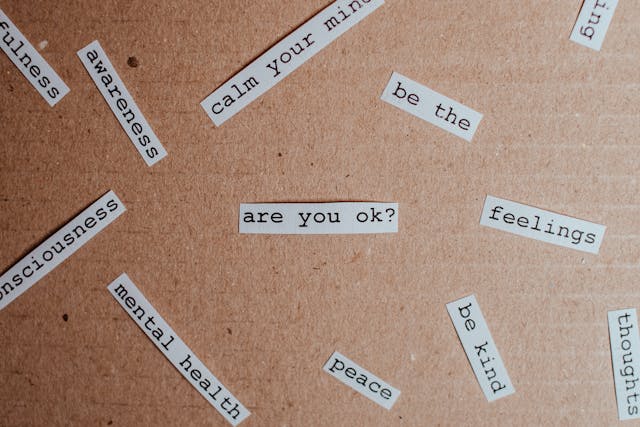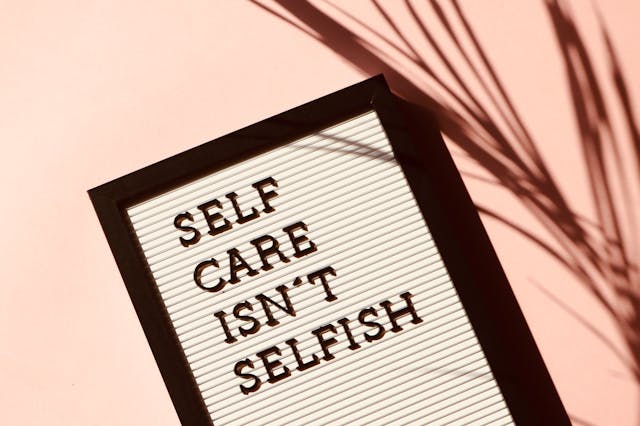What is Mental Health?
Mental health refers to our cognitive, emotional, and social well-being. It affects how we think, feel, and behave, and it plays a significant role in how we handle stress, relate to others, and make choices. Mental health is essential at every stage of life, from childhood and adolescence through adulthood.
Understanding Mental Health
Mental health is a broad and multifaceted concept that encompasses our emotional, psychological, and social well-being. It affects how we think, feel, and act, influencing every aspect of our lives. Just as physical health is crucial to our overall well-being, so too is mental health. Let’s delve into a comprehensive guide to understanding mental health, its importance, and how to nurture it.
Key Aspects of Mental Health:
1. Emotional Well-being:
Emotional well-being involves understanding, accepting, and managing our emotions in a healthy and productive way. It’s about being aware of our feelings and being able to express them appropriately. Emotional well-being doesn’t mean being happy all the time; it means being able to cope with life’s challenges and bounce back from adversity.
2. Psychological Well-being:
Psychological well-being encompasses our thoughts, beliefs, and attitudes. It involves having a positive self-image, a sense of purpose, and the ability to manage stress effectively. Psychological well-being is about feeling good about ourselves and being able to function well in our daily lives.
3. Social Well-being:
Social well-being relates to our relationships with others and our sense of belonging in a community. It involves building and maintaining healthy relationships, being able to communicate effectively, and feeling connected to others. Social well-being is essential for our overall happiness and life satisfaction.
The Importance of Mental Health:
Mental health is just as important as physical health and should be treated with the same level of care and attention. Good mental health allows us to:
– Cope with stress: Mental health enables us to cope with the stresses and challenges of daily life, both big and small.
– Build and maintain relationships: Healthy mental health allows us to form meaningful relationships with others and maintain a strong support network.
– Make sound decisions: When our mental health is in good shape, we can think clearly and make rational decisions.
– Work productively: Mental health plays a crucial role in our ability to work efficiently and achieve our goals.
– Enjoy life: Good mental health allows us to enjoy life to the fullest and find pleasure in the things we do.
Understanding Mental Illness:

Just as we can experience physical health problems, we can also experience mental health problems. Mental illness refers to a wide range of conditions that affect mood, thinking, and behavior. Some common types of mental illness include:
– Depression: A mood disorder characterized by persistent feelings of sadness, hopelessness, and loss of interest in activities.
– Anxiety Disorders: A group of mental health disorders characterized by excessive worry, fear, or nervousness. Examples include generalized anxiety disorder, panic disorder, and social anxiety disorder.
– Bipolar Disorder: A mood disorder characterized by extreme mood swings that include emotional highs (mania or hypomania) and lows (depression).
– Schizophrenia: A severe mental disorder characterized by distorted thinking, hallucinations, and delusions.
Promoting Mental Health:
Maintaining good mental health involves taking care of your mind and body. Here are some ways to promote mental well-being:
1. Self-care: Engage in activities that you enjoy and that help you relax, such as reading, spending time with loved ones, or practicing mindfulness and meditation.
2. Stay Active: Regular physical activity can boost your mood and improve your mental well-being. Aim for at least 30 minutes of exercise most days of the week.
3. Build Relationships: Cultivate supportive relationships with friends, family, and colleagues. Spend time with people who uplift and support you.
4. Seek Help When Needed: If you’re struggling with your mental health, don’t hesitate to seek professional help. A mental health professional can provide support, guidance, and treatment options.
5. Practice Mindfulness: Mindfulness techniques, such as meditation and deep breathing exercises, can help reduce stress and improve mental well-being.
The Significance of Mental Health Awareness

Mental health awareness encompasses a broad spectrum of conditions and challenges that affect millions of people worldwide. It involves understanding, empathizing, and supporting individuals who are dealing with mental health issues. By raising awareness, we can help to dispel the myths and stigmas that have often overshadowed conversations about mental health.
Breaking the Stigma
Stigma remains one of the most significant barriers to seeking help for mental health issues. It is rooted in fear, misinformation, and misunderstanding. Stigmatizing attitudes can prevent individuals from seeking the help and support they desperately need. This can lead to a worsening of symptoms and potentially dangerous situations. Breaking the stigma surrounding mental health involves fostering open, honest conversations. It’s about creating an environment where individuals feel safe and supported in discussing their struggles without fear of judgment or discrimination. When we normalize conversations about mental health, we encourage individuals to seek help when needed, leading to earlier intervention and better outcomes.
The Impact of Mental Health Awareness
Raising awareness about mental health can have a profound impact on individuals, communities, and society as a whole. By promoting understanding and empathy, we can reduce the shame and isolation often associated with mental health issues. This, in turn, can encourage more people to seek help and support, leading to better overall well-being.
When mental health awareness is prioritized, we see a shift in attitudes, policies, and resources. Communities become more inclusive and supportive, workplaces implement mental health initiatives, and governments allocate more funding to mental health services. These changes not only benefit individuals struggling with mental health issues but also contribute to a healthier, more productive society.
How Can You Help?
You don’t have to be a mental health professional to make a difference. Here are some ways you can help raise awareness about mental health:
1. Educate Yourself: Take the time to learn about mental health conditions, warning signs, and available resources. The more you know, the better equipped you’ll be to support those in need.
2. Start Conversations: Be open to discussing mental health with friends, family, and colleagues. Your willingness to listen and offer support can make a world of difference to someone who is struggling.
3. Break the Silence: Don’t be afraid to share your own experiences with mental health. By being open and honest, you can help break down stigmas and encourage others to do the same.
4. Support Mental Health Initiatives: Get involved with local or national mental health organizations. Whether it’s volunteering your time or making a donation, every contribution helps.
5. Practice Self-Care: Remember to take care of your own mental health. Prioritize self-care activities that help you feel relaxed and rejuvenated.
6. Motivate Yourself: We bring here for you a special Brain Entertainment Program called “Journey of the Soul”
Transform Your Life In Just Minutes A Day With The Little-Known Secrets Of “NeuroSensory Algorithms”
Introducing….

“Journey Of The Soul”
Accelerate The 9 Core Areas Of Your Emotional Guidance System
For this limited time offer, you can order “Journey Of The Soul” and receive all 10 advanced brainwave entertainment audios for a mere $300 $67 $37

Unlocking Positivity: 20 Empowering Mental Health Quotes to Inspire and Motivate

1. “You don’t have to be positive all the time. It’s perfectly okay to feel sad, angry, annoyed, frustrated, scared, or anxious. Having feelings doesn’t make you a negative person. It makes you human.” – Lori Deschene
2. “Mental health…is not a destination, but a process. It’s about how you drive, not where you’re going.” – Noam Shpancer
3. “Mental health is not just the absence of mental illness. It’s about thriving rather than surviving.” – Unknown
4. “You are not your illness. You have an individual story to tell. You have a name, a history, a personality. Staying yourself is part of the battle.” – Julian Seifter
5. “You don’t have to control your thoughts. You just have to stop letting them control you.” – Dan Millman
6. “Taking care of your mental health is just as important as taking care of your physical health.” – Unknown
7. “The strongest people are not those who show strength in front of us but those who win battles we know nothing about.” – Unknown
8. “Healing doesn’t mean the damage never existed. It means the damage no longer controls our lives.” – Unknown
9. “You are allowed to be both a masterpiece and a work in progress simultaneously.” – Sophia Bush
10. “You are enough just as you are. Each emotion you feel, everything in your life, everything you do or don’t do…where you are right now is exactly where you’re supposed to be. No apologies or excuses.” – Scott Stabile
11. “Sometimes the people around you won’t understand your journey. They don’t need to, it’s not for them.” – Joubert Botha
12. “The only journey is the one within.” – Rainer Maria Rilke
13. “You, yourself, as much as anybody in the entire universe, deserve your love and affection.” – Buddha
14. “It’s okay to be a glowstick: Sometimes we need to break before we shine.” – Unknown
15. “Your mental health is a priority. Your happiness is an essential. Your self-care is a necessity.” – Unknown
16. “You are not alone. There are people who care and support you, even if it doesn’t always feel like it.” – Unknown
17. “On particularly rough days when I’m sure I can’t possibly endure, I like to remind myself that my track record for getting through bad days so far is 100%, and that’s pretty good.” – Unknown
18. “It’s not selfish to love yourself, take care of yourself, and to make your happiness a priority. It’s necessary.” – Mandy Hale
19. “You were never created to live depressed, defeated, guilty, condemned, ashamed, or unworthy. You were created to be victorious.” – Joel Osteen
20. “Start where you are. Use what you have. Do what you can.” – Arthur Ashe
Conclusion
Mental health awareness is not just a buzzword; it’s a crucial component of overall well-being. By breaking the stigma, fostering understanding, and promoting empathy, we can create a more inclusive and supportive society for all. Together, let’s continue the conversation and work towards a future where mental health is treated with the same level of importance as physical health. Remember, it’s okay to not be okay, and asking for help is a sign of strength, not weakness.




